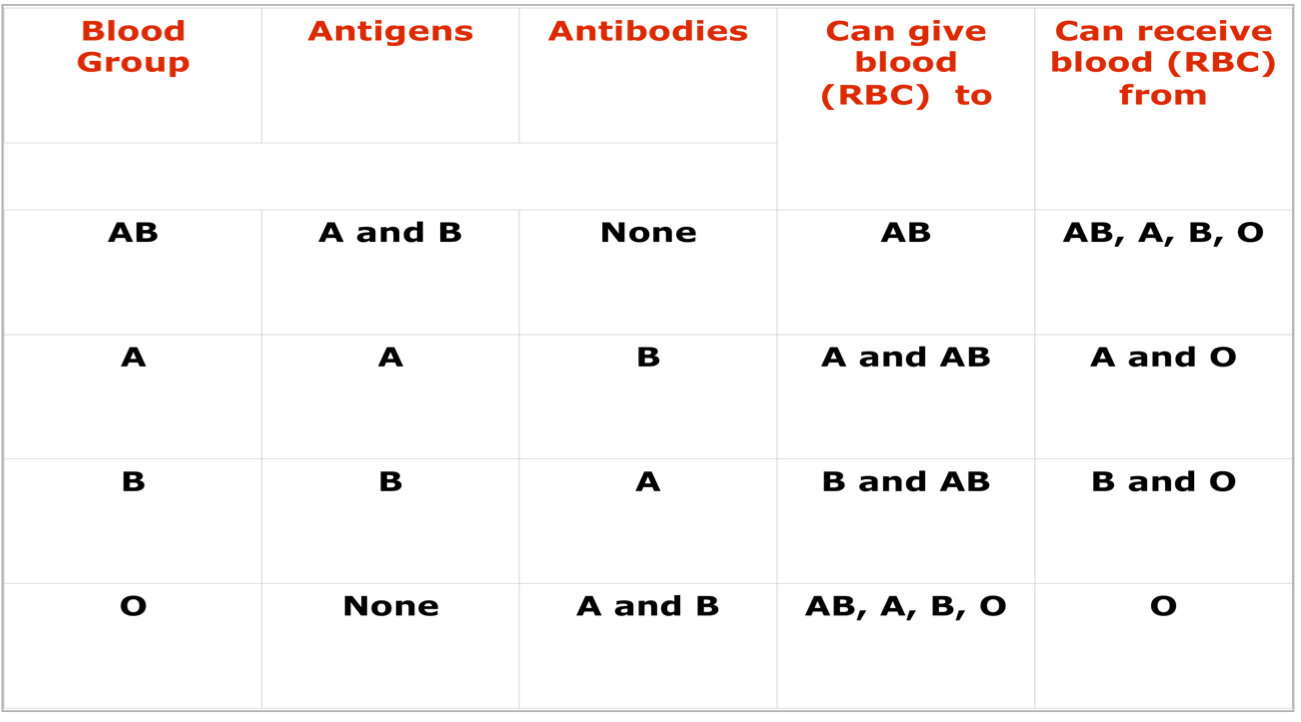Are you an A+ or a B+? We are not talking about grades here but of blood types.
Your blood type is a way to categorize your blood according to what’s in it: antigens, including the Rhesus, or Rh, factor.
Antigens are a type of protein on red blood cells.
Based on the type of antigen, one’s blood will be categorized as Type A, Type B, Type AB, or Type O. Regarding the antigen property of the blood all human beings can be classified into 4 groups, those with antigen A (group A), those with antigen B (group B), those with both antigen A and B (group AB) and those with neither antigen (group O).
When antigens come into contact with substances that are unfamiliar to your body, such as certain bacteria, they trigger a response from your immune system. The same type of response can occur during a blood transfusion if your donor’s blood type doesn’t match with yours. In that case, your blood cells could clump and cause potentially fatal complications.
The Rh factor is also a substance on the red blood cells. This is where the + and - signs next to your blood type come into play. If you have the Rh factor, you are considered Rh positive (+), and if you don’t, you’re considered Rh negative (-). Whether or not you have the Rh factor is usually only a concern during pregnancy. This is because the mother’s and baby’s Rh status need to match, or the mother’s immune system may react as if it’s allergic to the baby. Severe cases of mismatched Rh status can lead to diseases such as anemia or brain damage in the baby. In the most severe cases, it can even be fatal. If you are pregnant and discover that your baby has a different Rh status, don’t panic. Fortunately, there are injections pregnant women can have to avoid this reaction.
Crossmatching. Blood Transfusion, Giving and receiving transfusion.
